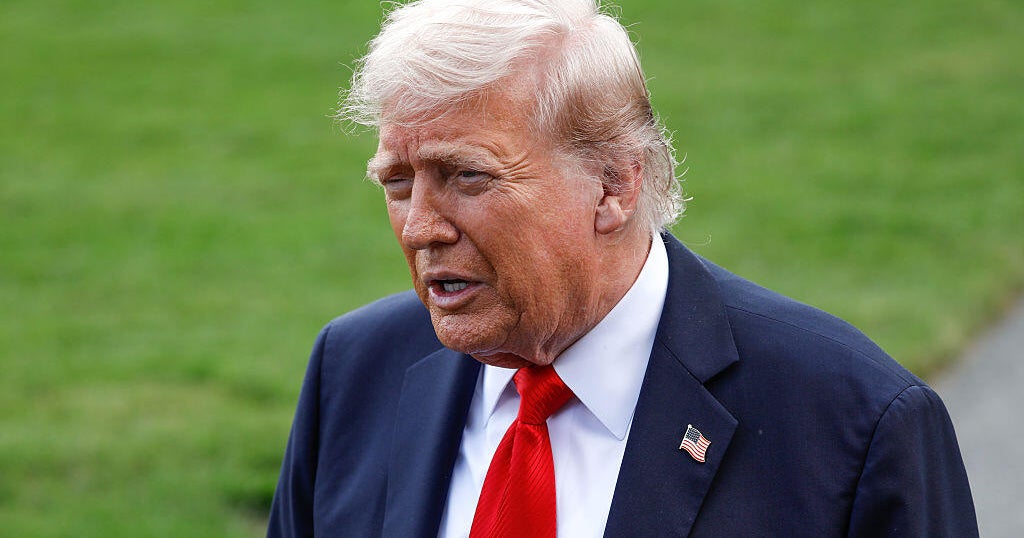Judge Accuses Trump Admin of ‘End-Run’ on Deportation Protections to Ghana
Judge Accuses Trump Admin of ‘End-Run’ on Deportation Protections to Ghana

A federal judge recently accused the Trump administration of attempting an “end-run” around legal obligations designed to protect individuals fleeing persecution and torture. The accusation came after the deportation of a group of African migrants to Ghana, some of whom now face return to their home countries.
U.S. District Court Judge Tanya Chutkan issued an order requiring the U.S. government to provide an explanation by 9 p.m. EST on Saturday regarding the measures being taken to prevent these deportees from being sent to their countries of origin or other nations where they fear persecution or torture.
Earlier this month, the U.S. deported over a dozen non-Ghanaian nationals, including individuals from Gambia and Nigeria, to Ghana. This move positions Ghana as the latest country to accept these so-called third-country deportations at the Trump administration’s request. The Ghanaian government has confirmed these deportations.
Attorneys involved in a lawsuit allege that the deportees have been held in “squalid conditions and surrounded by armed military guards in an open-air detention facility” in Ghana.
Lee Gelernt, an attorney for the American Civil Liberties Union, informed Judge Chutkan during a Saturday hearing that four of the deportees have been notified that Ghana intends to return them to their native nations as early as Monday. This is despite existing orders from U.S. immigration judges that bar their deportation to their home countries due to concerns of potential persecution or torture. One Gambian man, identified by attorneys as bisexual, has reportedly already been returned to Gambia, according to the lawsuit.
The legal protections afforded to these deportees, rooted in the United Nations Convention Against Torture and the U.S. immigration law’s withholding of removal provision, prohibit the U.S. from sending foreigners to countries where they would face persecution or torture. However, unlike asylum, these provisions still permit the U.S. to send them to other, third-party countries.
The Justice Department lawyer representing the U.S. government at the hearing did not dispute Ghana’s plans to return the deportees to their native countries. The lawyer conceded that the Ghanaian government appears to be violating diplomatic assurances it allegedly made, vowing not to send these migrants to places where they could be harmed. However, the Justice Department attorney stated that the U.S. could not dictate Ghana’s actions at this juncture.
Judge Chutkan expressed frustration with this stance, calling it “disingenuous.” She pressed the Justice Department attorney on whether the U.S. anticipated this outcome and suggested the deportations appeared to be an “end-run” to circumvent the deportees’ legal protections. She proposed that the U.S. could retrieve the deportees and return them to the U.S. or transfer them to another safe country, or alternatively, inform Ghana that it is violating its agreement with the U.S.
“How’s this not a violation of your obligation?” she questioned the Justice Department attorney.
Despite her concerns, Chutkan acknowledged that her “hands may be tied” given that the deportees are no longer on American soil or in U.S. custody. She also implied that the Supreme Court would likely pause any order requiring the American government to intervene to halt the returns.
Representatives for the Departments of State and Homeland Security did not immediately respond to requests for comment regarding the deportations to Ghana and Judge Chutkan’s order.
Gelernt lauded Chutkan’s mandate, stating, “The Court properly recognized that the United States government, with full knowledge that these individuals are going to be sent to danger, cannot simply wash their hands of the matter.”
As part of its broader deportation efforts, the Trump administration has actively sought agreements with various countries globally, including El Salvador, Kosovo, Panama, and South Sudan, to accept deportees who are not their citizens.
Disclaimer: This content is aggregated from public sources online. Please verify information independently. If you believe your rights have been infringed, contact us for removal.